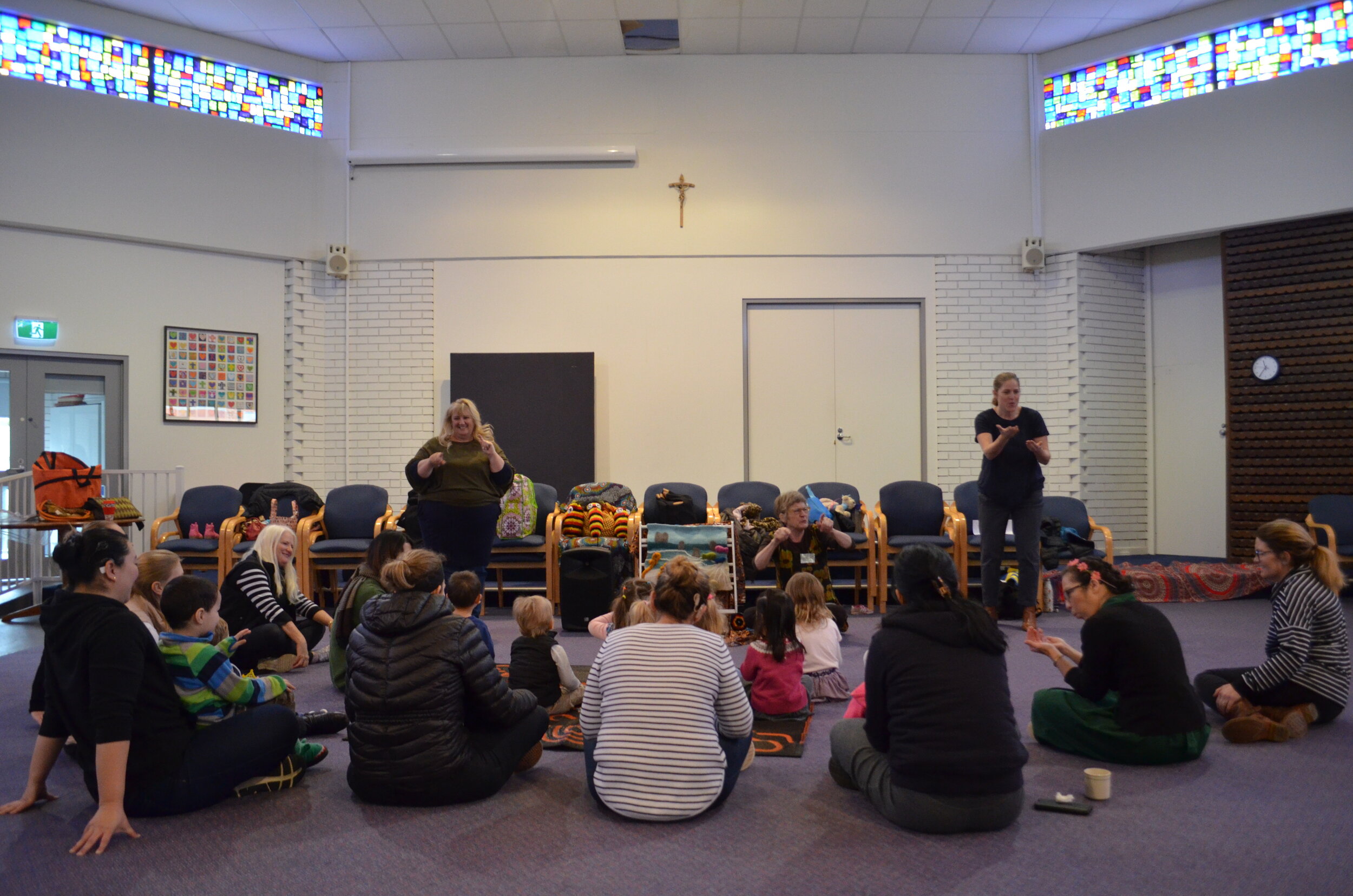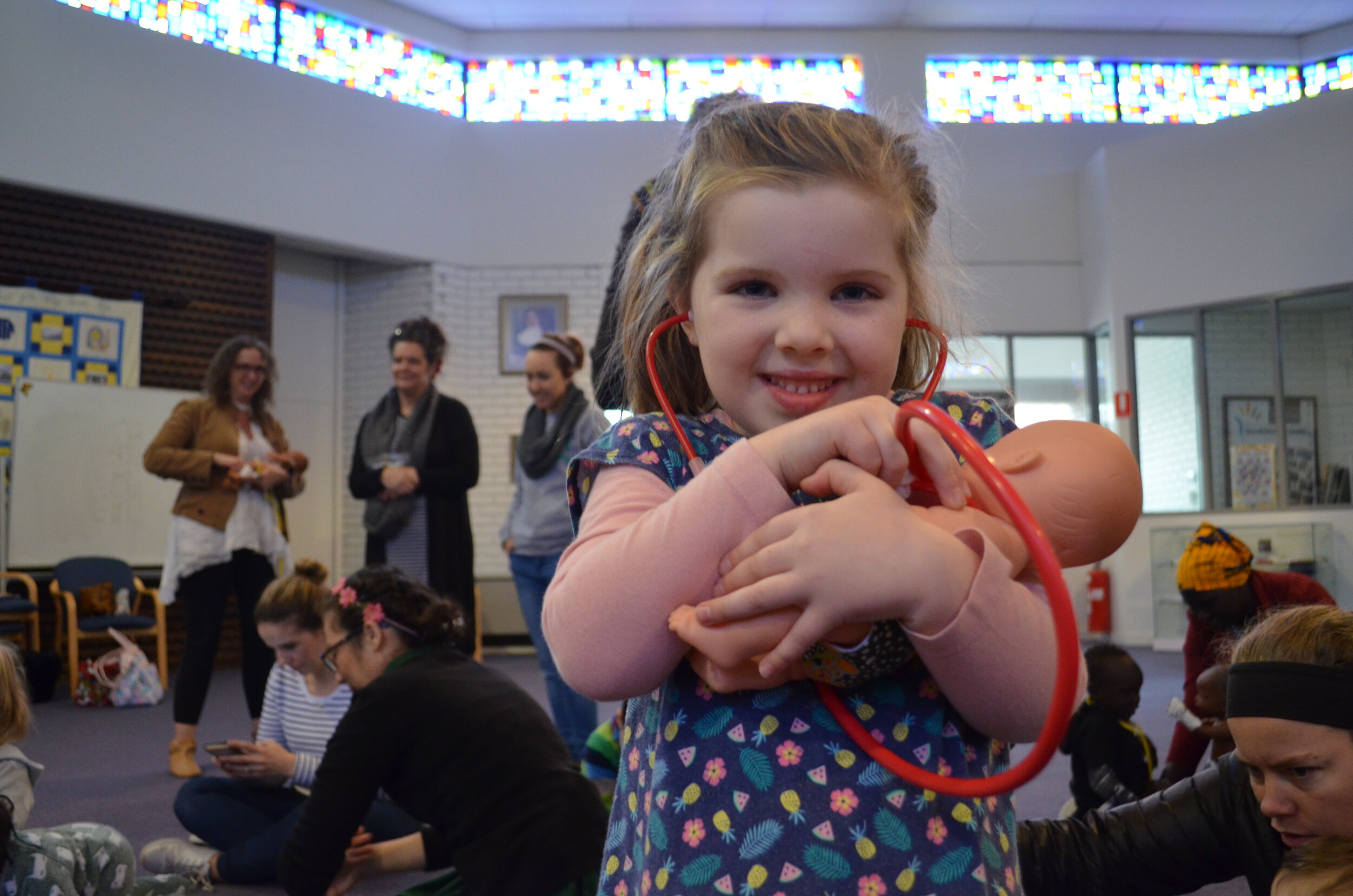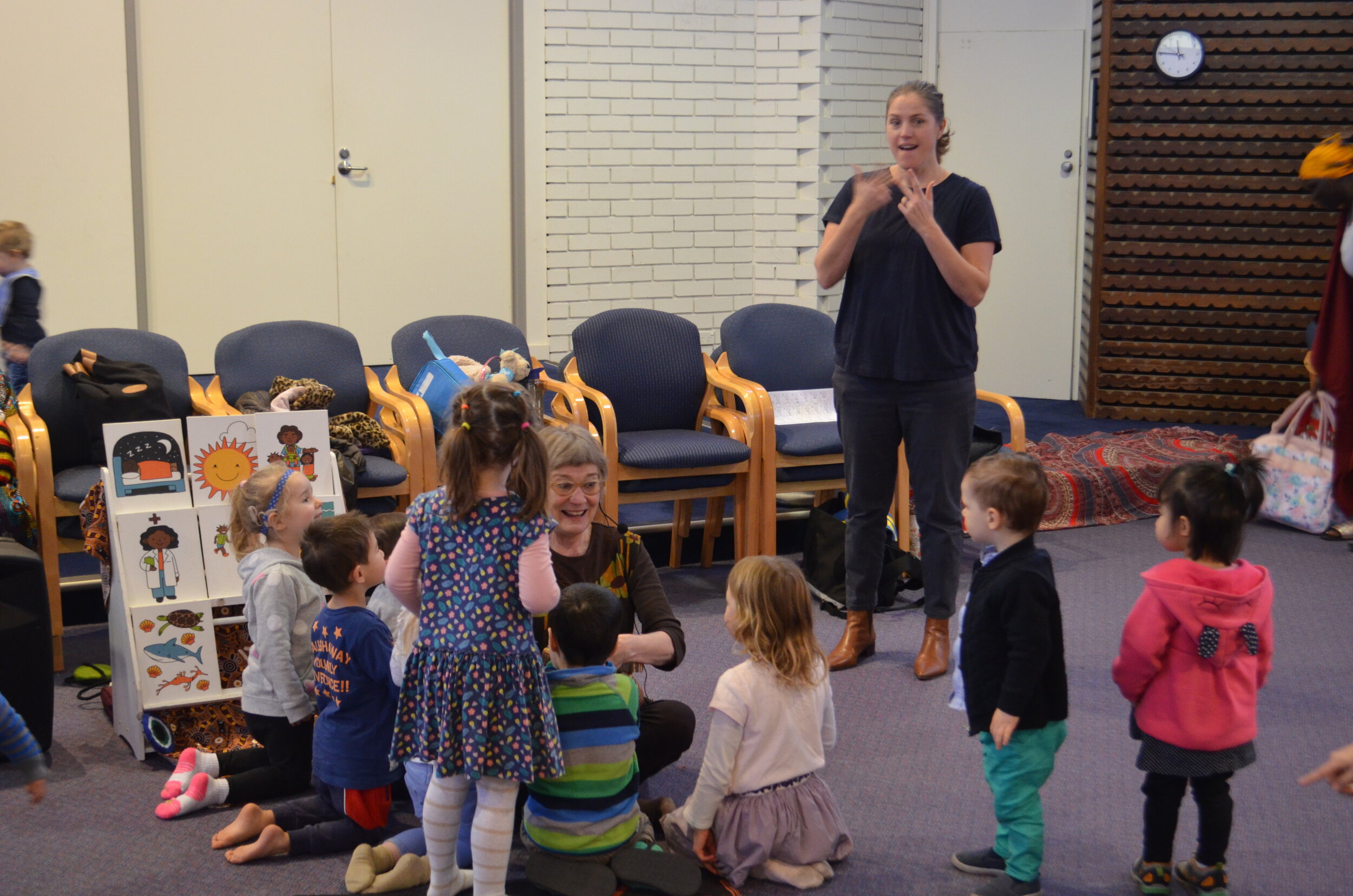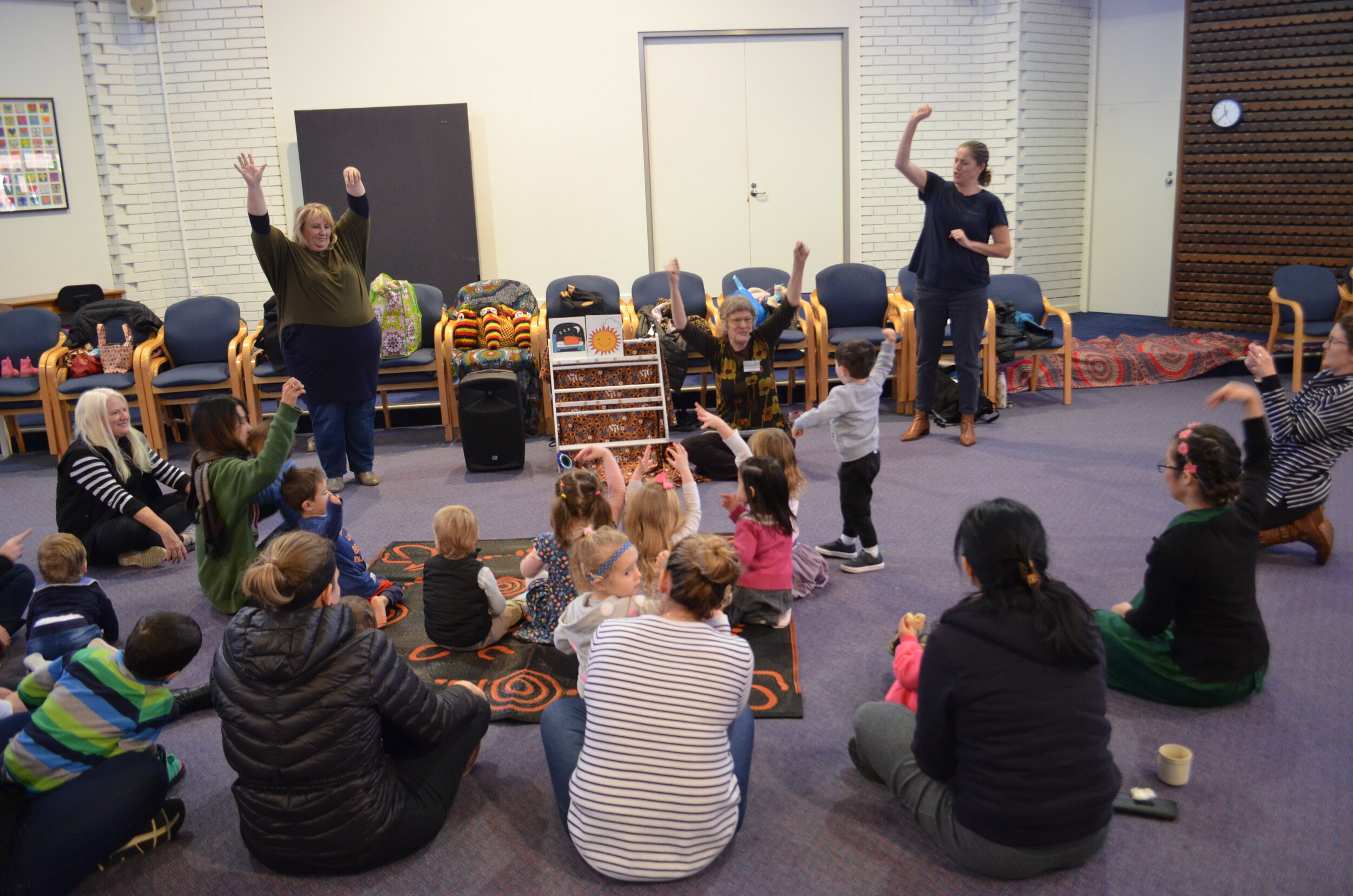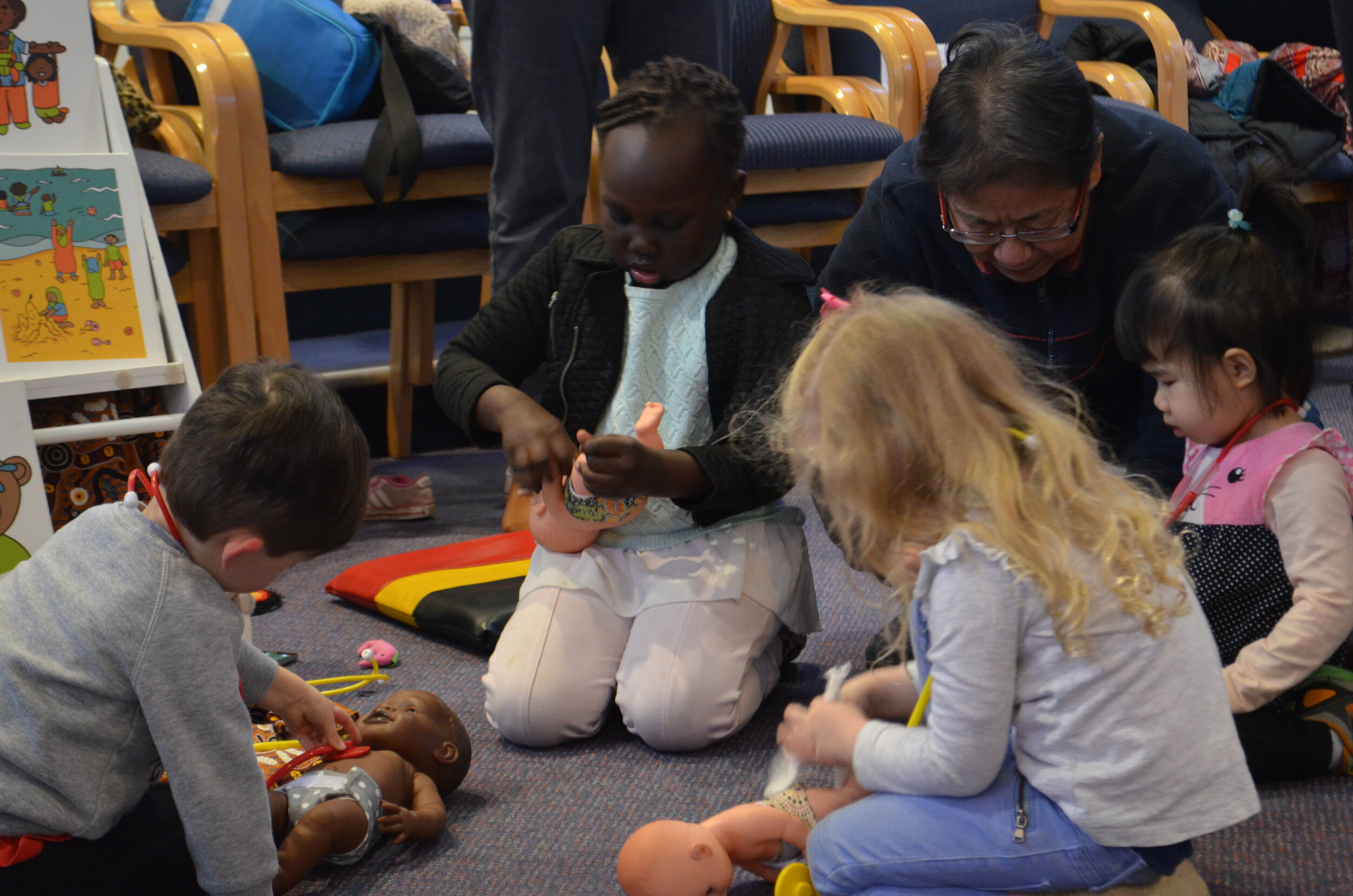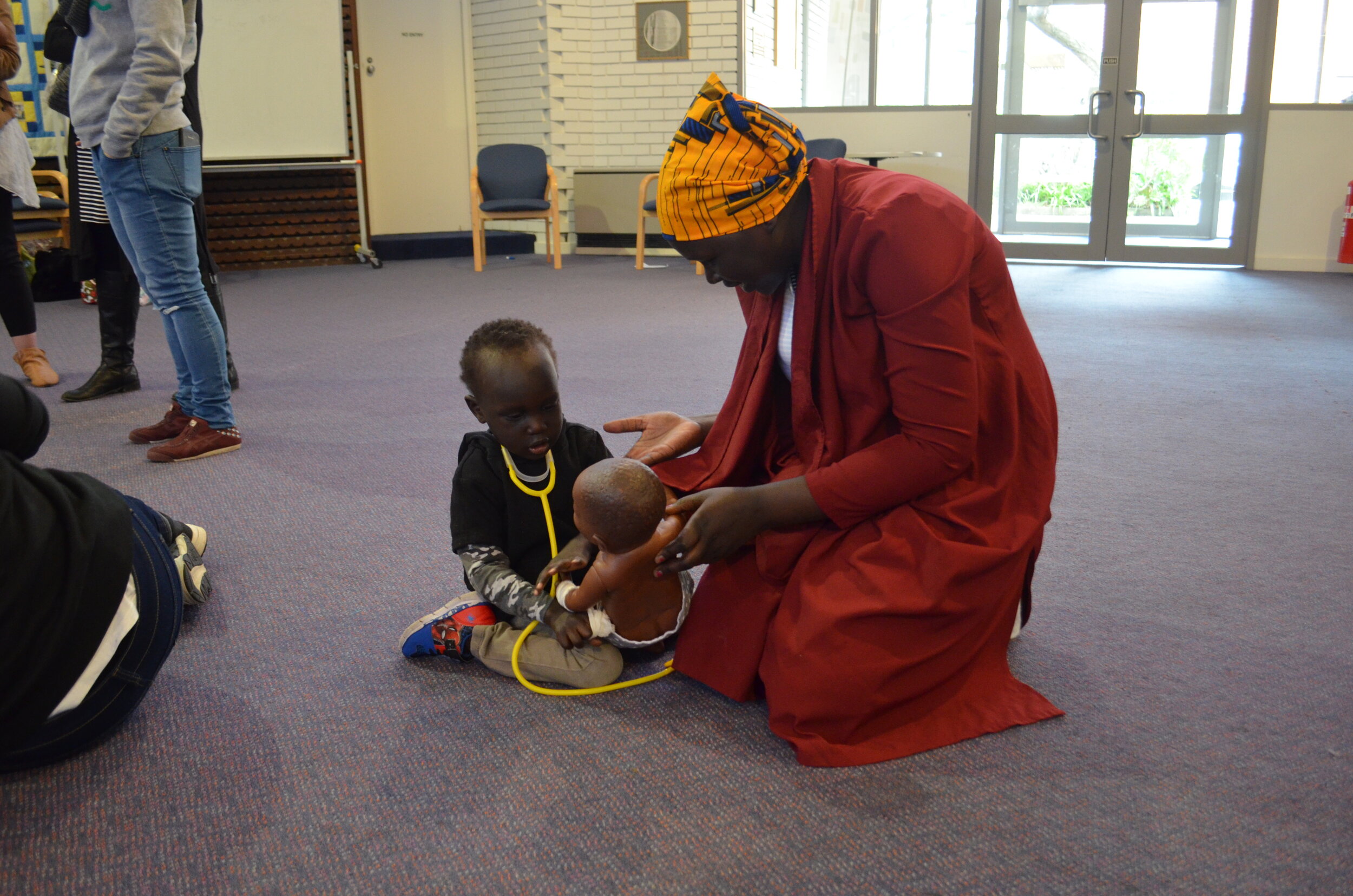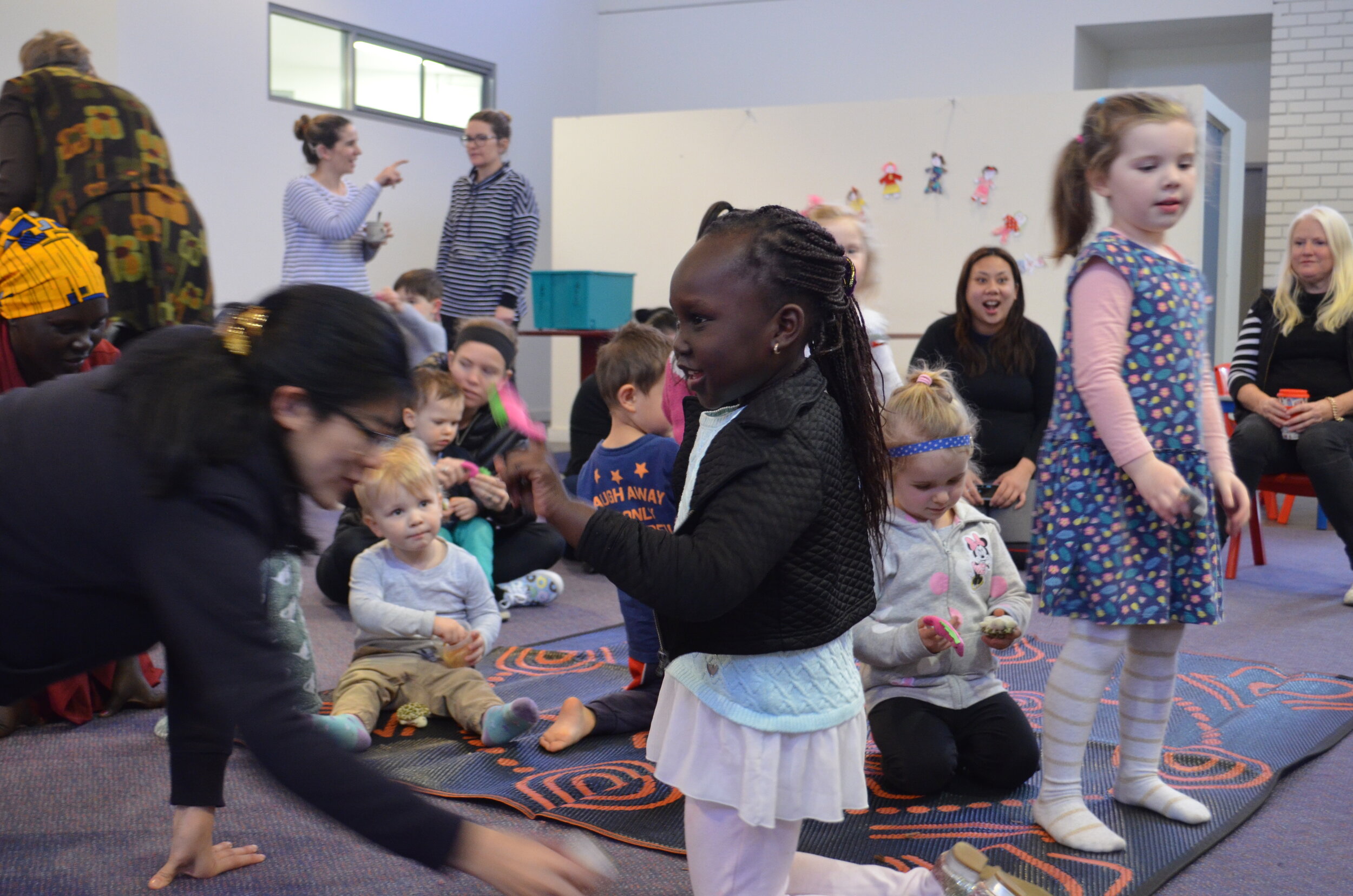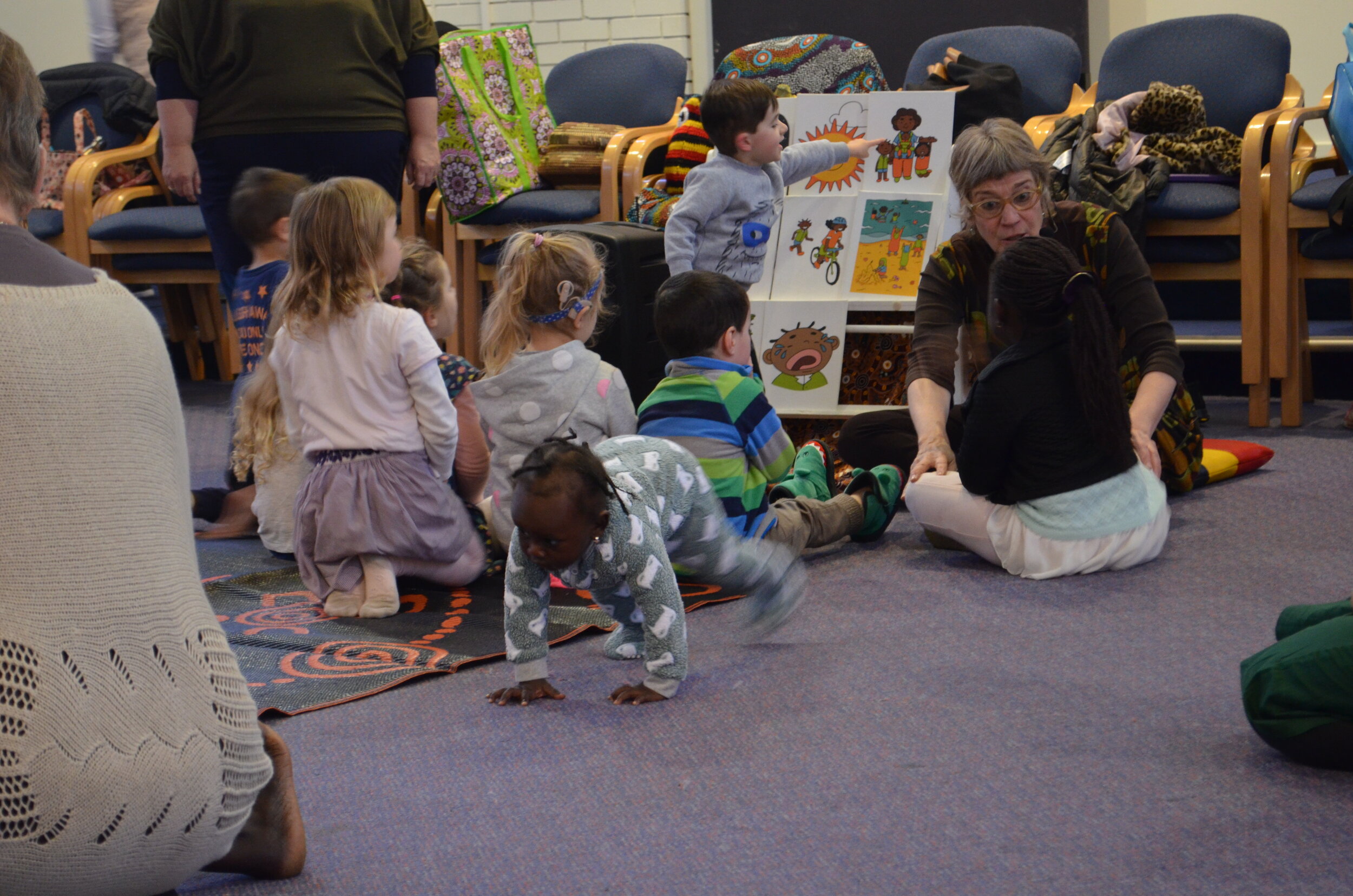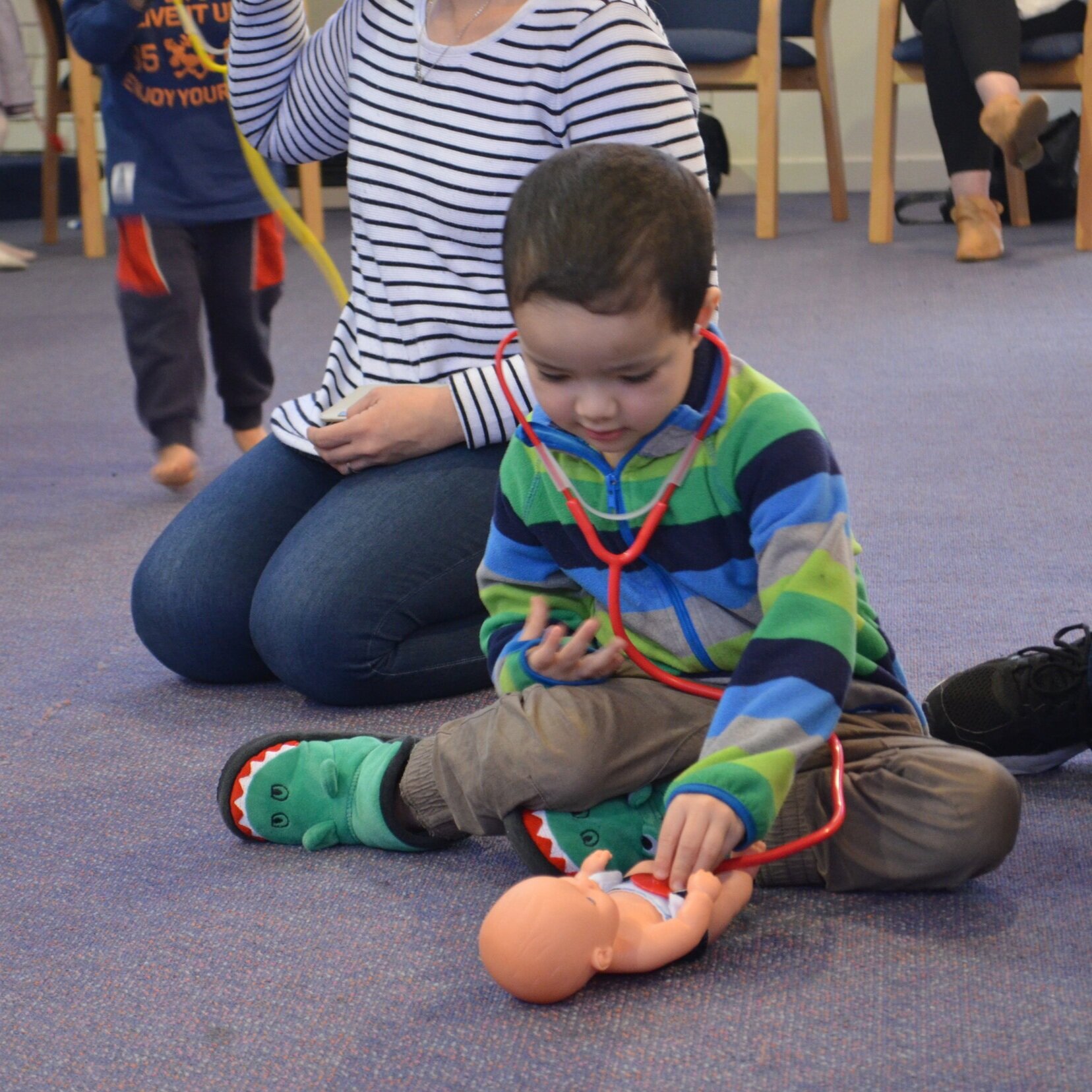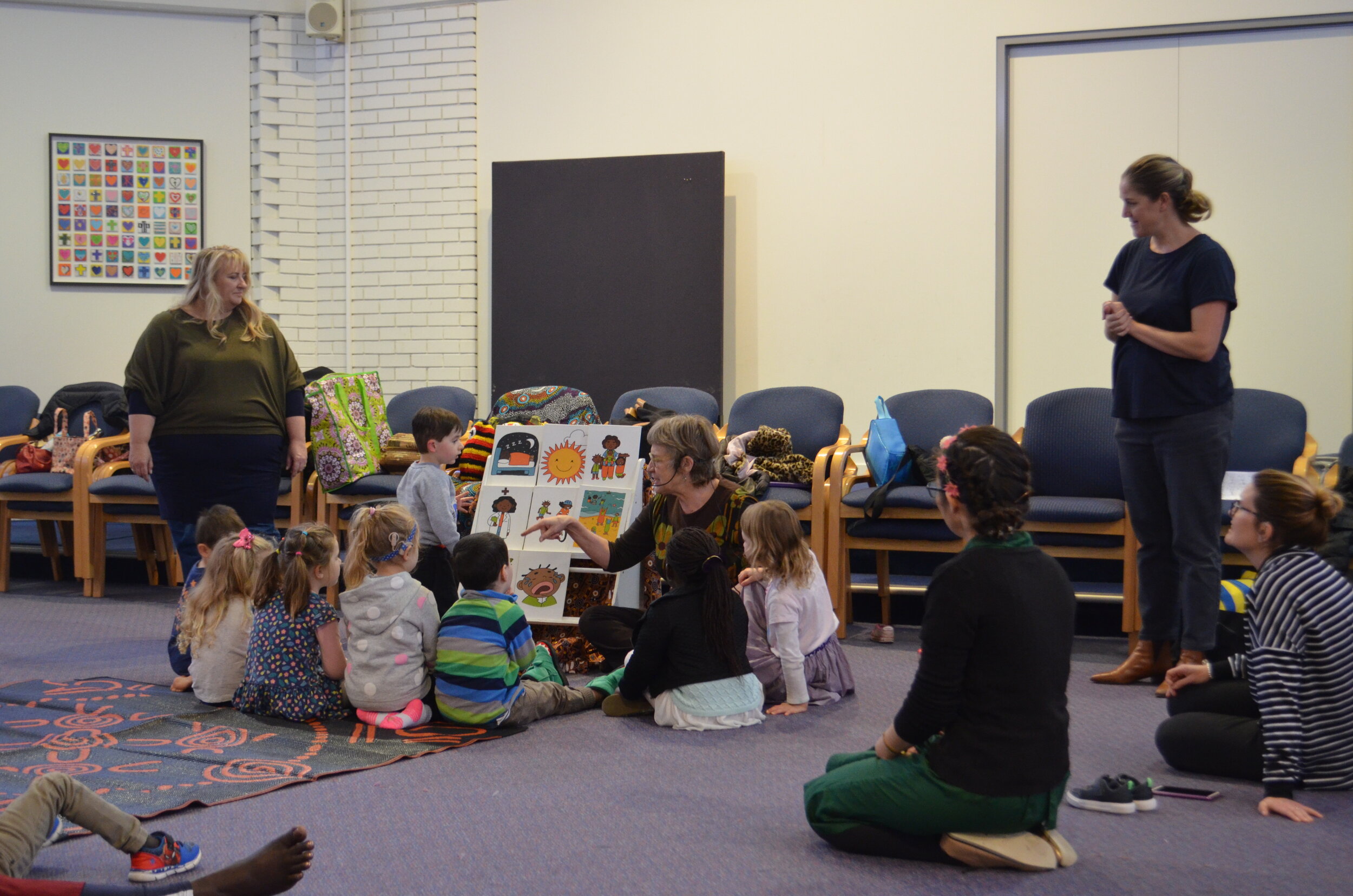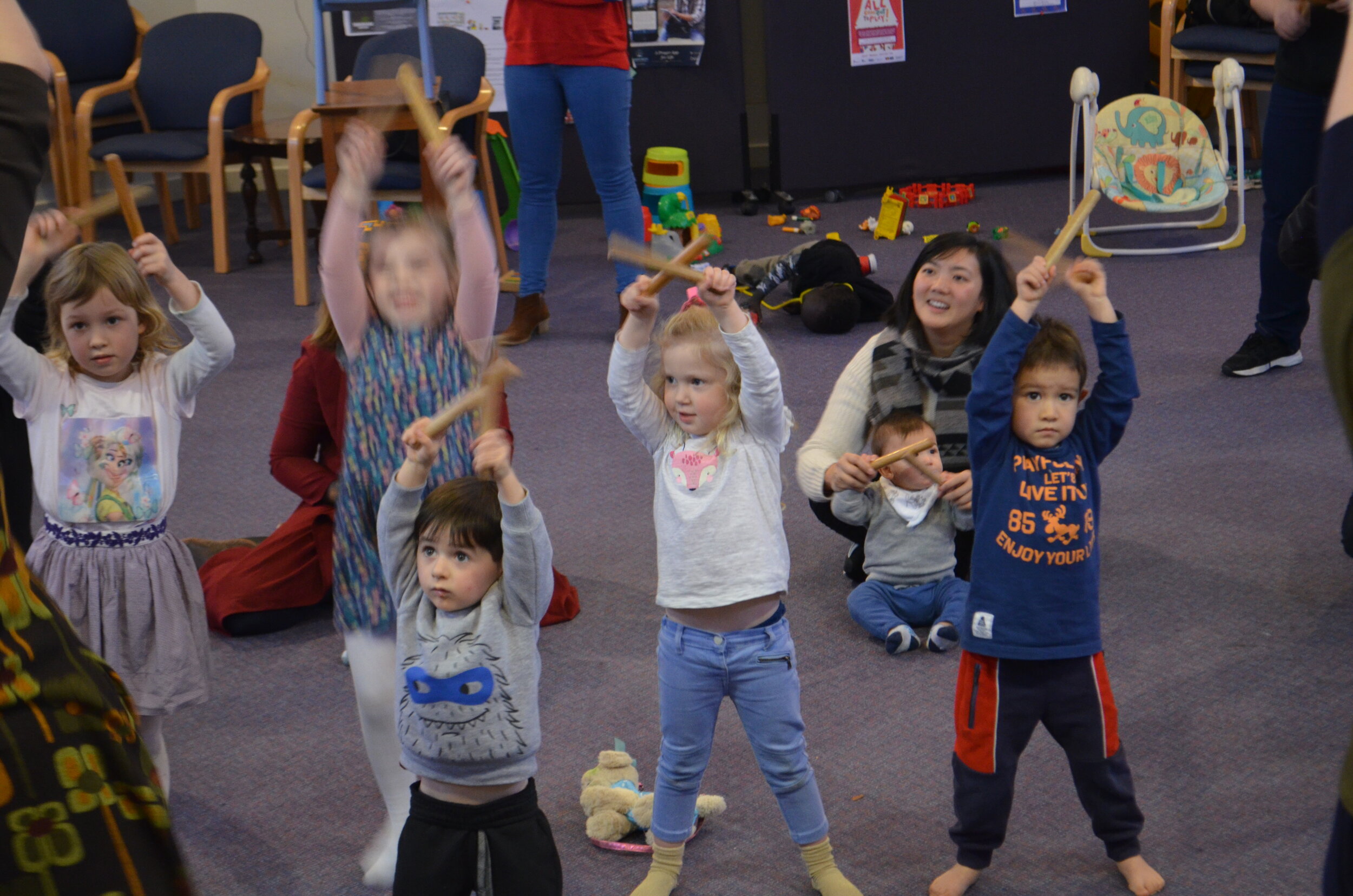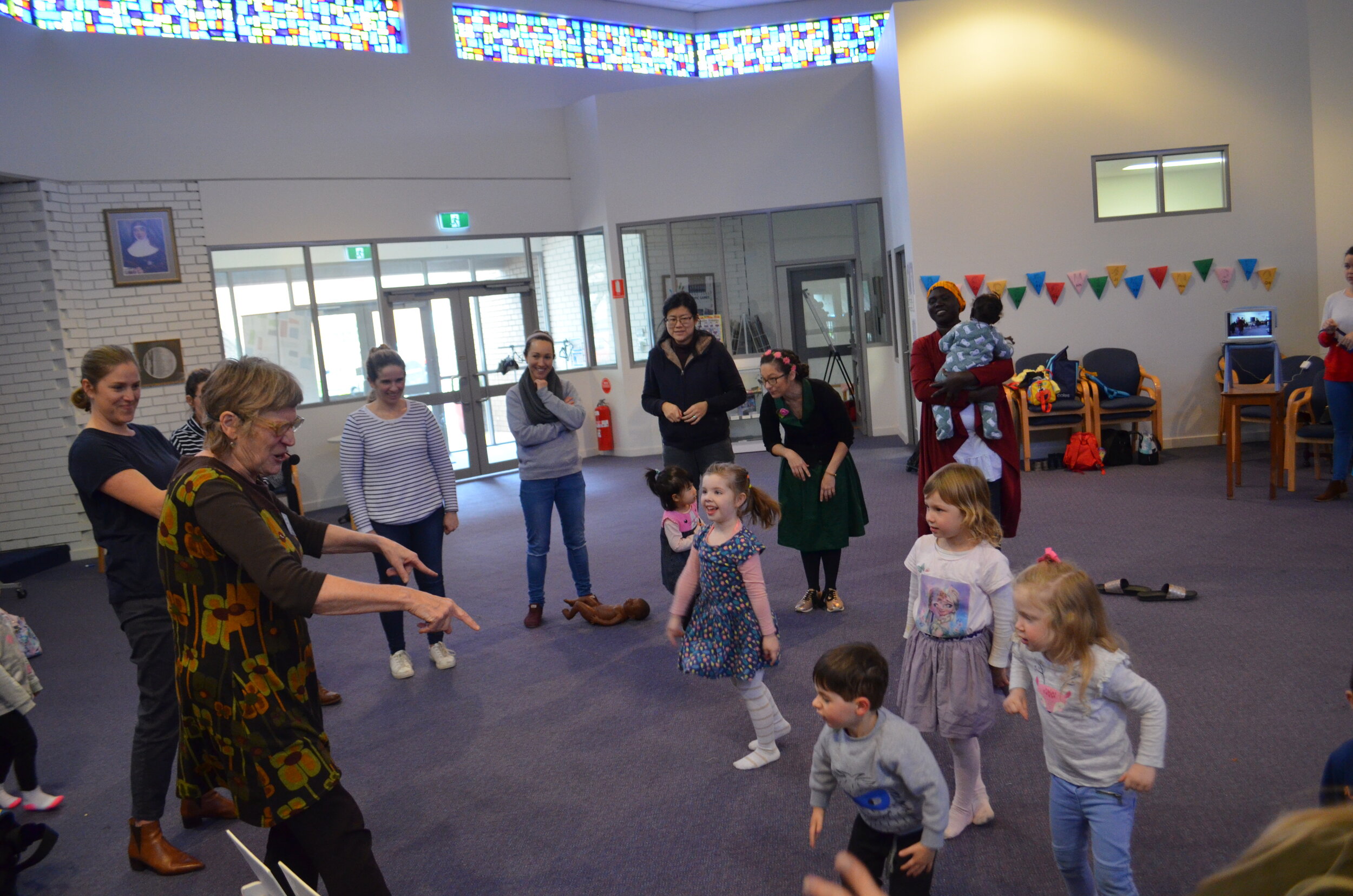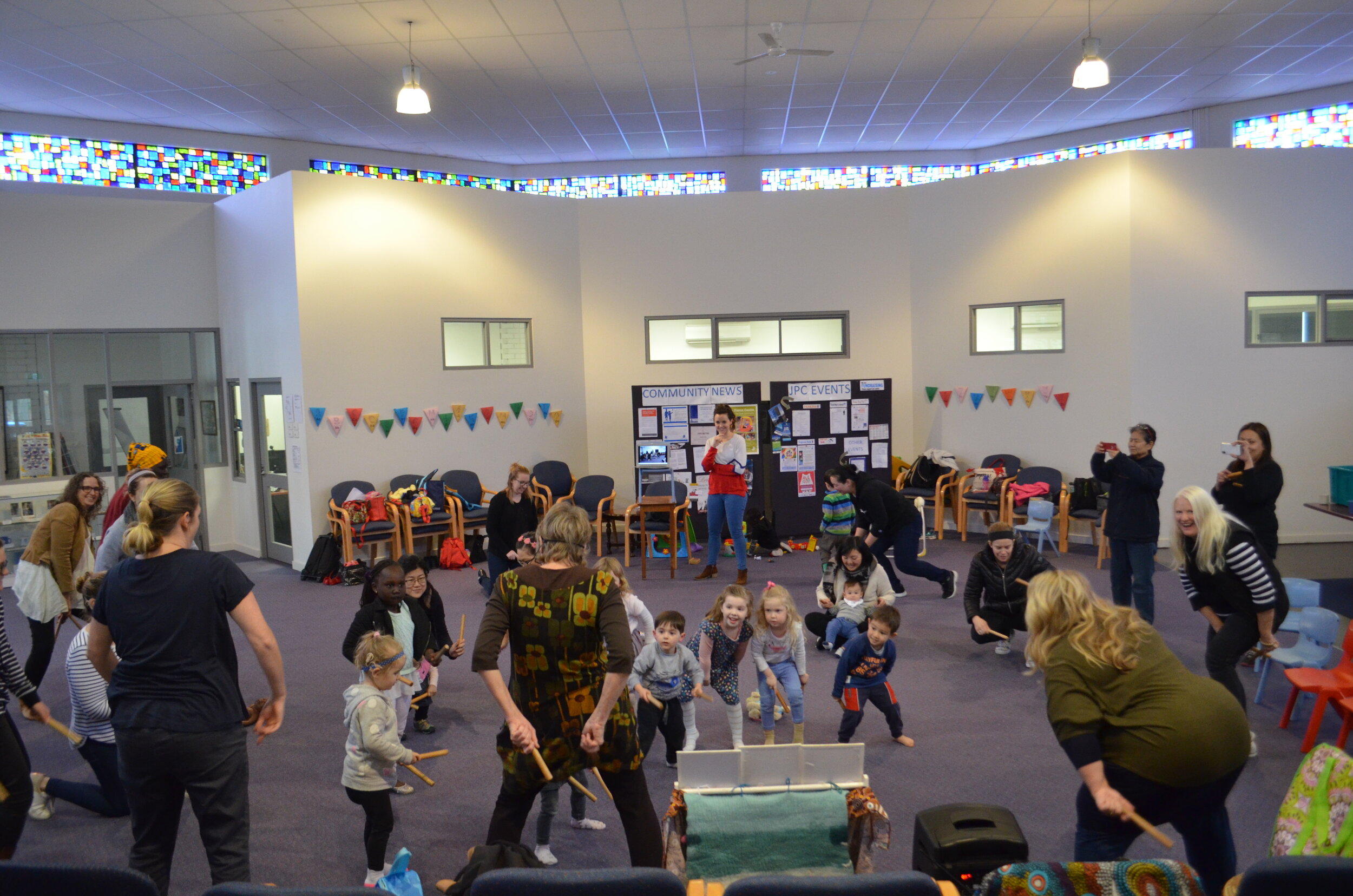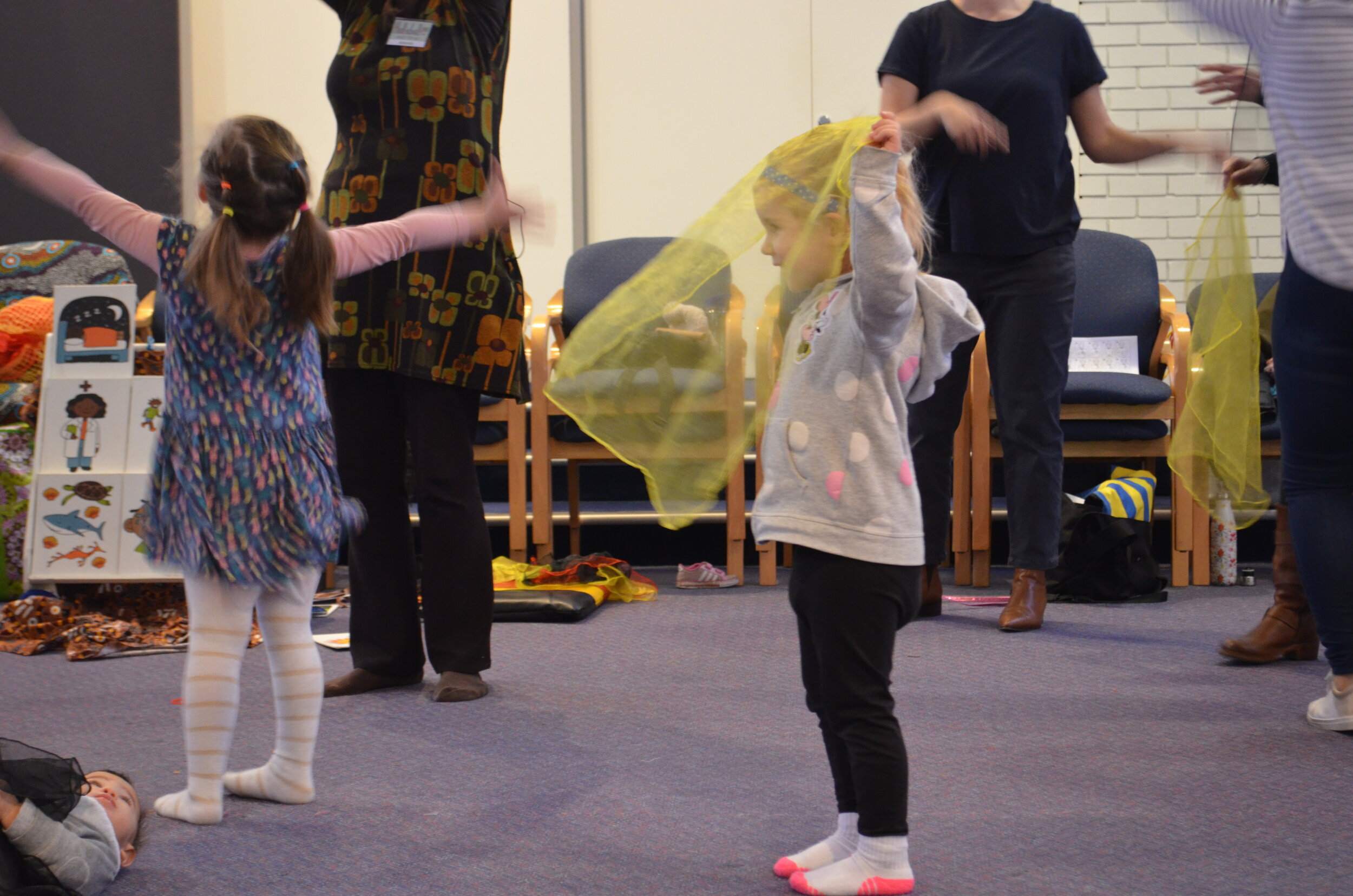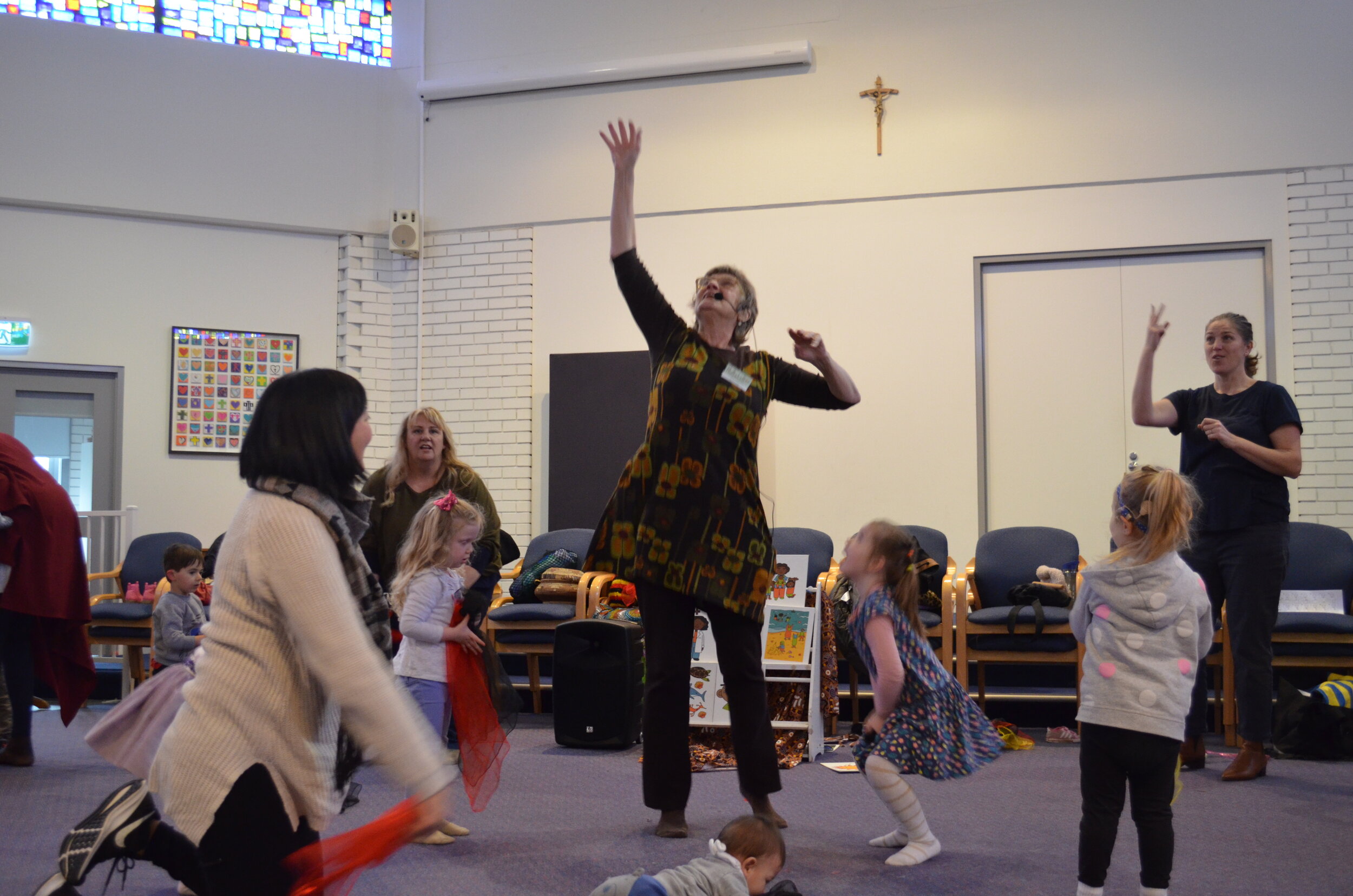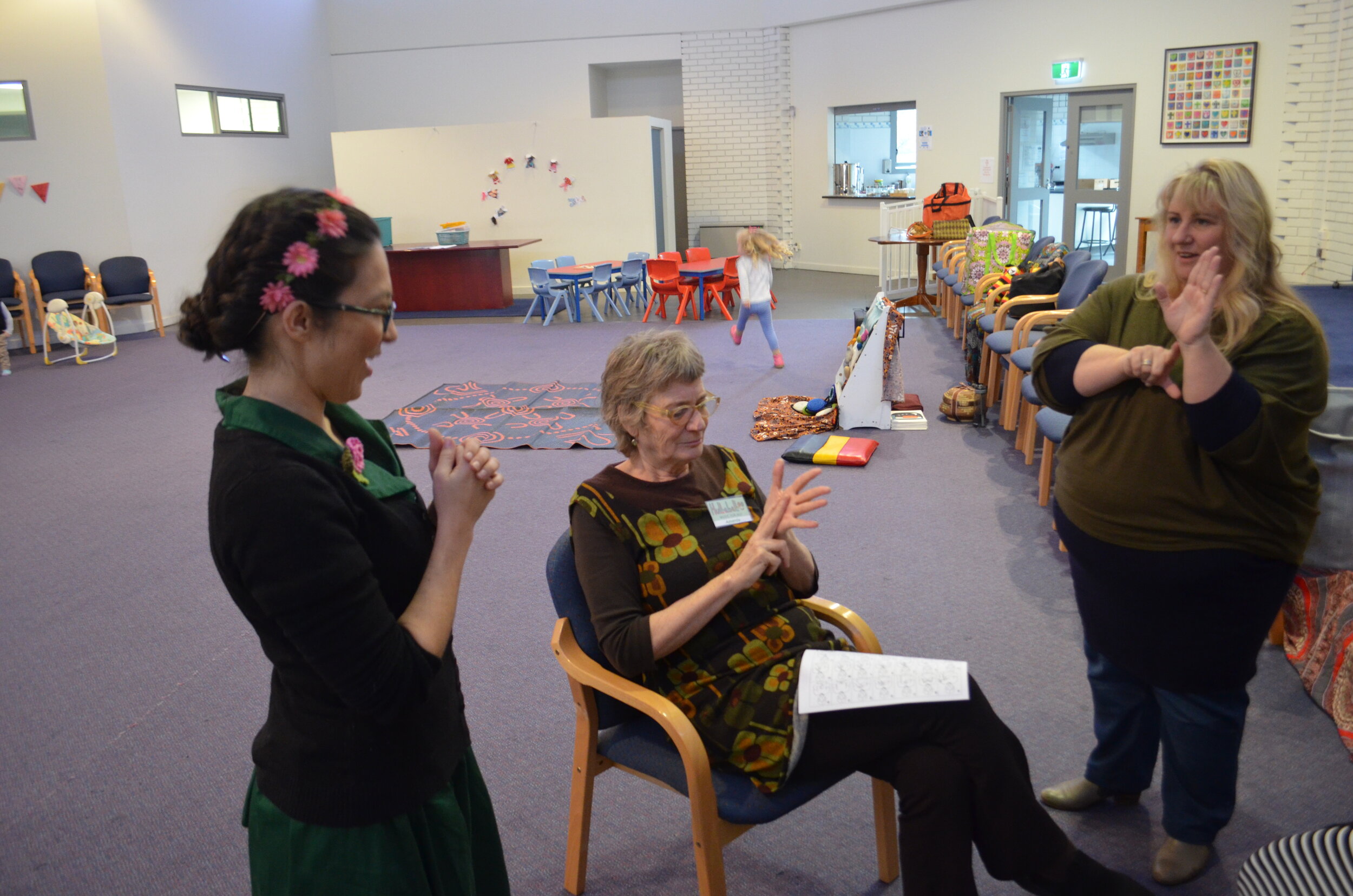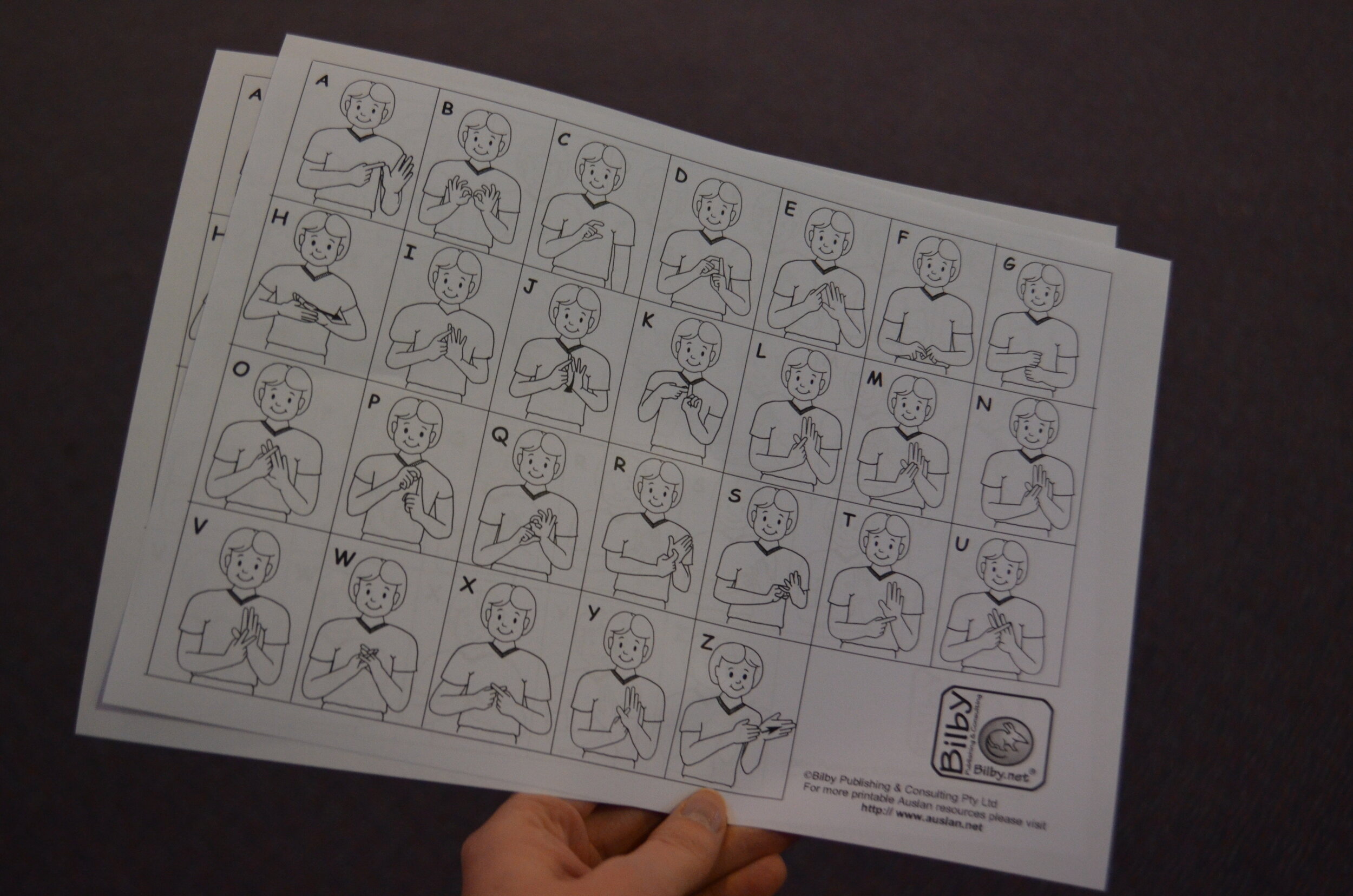As Unique Individuals,
Together We All Come Out to Play
“Music is crucial to our development as humans ... if we shut an entire minority out that is actually cutting them off of a huge part of our existence as human.” [1]
Amber Galloway Gallego said this when she visited Australia a few years ago. She is an accomplished music interpreter from the United States. Her quote is a good place to begin a discussion about inclusion and what role music has in creating inclusive and diverse spaces.
When we think about music, we often think about sound- but music has many aspects that call upon our other senses. Music can provide a vibration and it indeed involves words and stories. A music performance involves movement, expression and connection.
Music is not a sum of one part, but many that speak to us as human beings on our perpetual quest for meaning.
Playgroup coordinator Melissa Thompson was uncertain at first about playing music at her group, Signee Tots, which runs from the John Pierce Centre. Some of the children are deaf or have Deaf parents, carers or family members. Melissa had some trepidation that it would not provide full access to everyone.
“The feedback from my families when I started was overwhelming, they loved the songs and wanted more. The songs and the dance sessions we have done have been some of the most popular activities this year,” said Melissa.
Melissa explains that there is a vast difference between the lyrics to a song that are signed in isolation, and a song being fully interpreted. Lyrics on their own can be interpreted in specific ways, but they can become broader in scope when presented in conjunction with movement and expression.
“You can see the rhythm and the pitch in the signing, the hands flowing in a way analogous to how hearing voices change between speaking and singing.”
“I think it is of great importance to provide this for Deaf people,” said Melissa.
Melissa has been making a concerted effort to celebrate diversity at her playgroup. She has fashioned an inclusive space that fosters acceptance. Melissa said that when children are young, when they are curious and have lots of questions, it is a great time to talk about such things and teach children kind ways to respond to differences.
It seemed aptly timed when the team from All Come Out to Play got in touch, hoping to spend a morning with the Signee Tots playgroup. All Come Out to Play is a show about diversity, respectful relationships and gender equality, presented through song and story.
All Come Out to Play is a partnership between Playgroup Victoria, drummond street services and Hullaballoo Music For All as part of the Free From Violence Fund. Various skills were brought in from each organisation to develop the program.
With experience in performance, music creation, mental health, preventing violence against women, gender equality, building respectful relationships- and knowledge about playgroup, families and the early years- the program has blossomed over time.
All Come Out to Play has been shared throughout Victoria. The idea being to celebrate our unique qualities and embed positive messages about gender and individuality. It is preventative, aiming to connect with children from a young age, establishing good habits around self-identity and acceptance of others. All which Melissa promotes at her fortnightly playgroup.
Amanda Testro is the chief songwriter and performer of All Come Out to Play. She arrived early at Signee Tots, keenly engaging with the sign interpreter and learning a few Auslan words.
Amanda has been a performer for many years and well knows the power of music, especially for children, and particularly for children with different learning abilities and needs.
“Nothing focuses a group, particularly children, more than music,” said Amanda.
“Children are more engaged in learning when it is accompanied by music. Music is evocative. Music can be a mood changer and can influence your emotions.”
The children at Signee Tots playgroup were enraptured by Amanda’s songs, dances, artworks and jokes. Deaf or hearing, she made everyone feel part of the event. Amanda was considerate of her audience, sitting on the floor at eye level with the children and weaving through the audience handing out clapping sticks and ribbons. This increased the sensory play and involved each child and parent, too.
Amanda spoke about incidental learning, and how the All Come Out to Play program champions this:
“It is imbedded throughout. Counting how many children in the family (numeracy), diversity (family racial make-up), Auslan signs, fine motor skills activity (finger puppets), taking turns as doctor and patient (social), caring for the babies (empathy), listening awareness exercises (clap sticks), gross motor skills (dances), breathing exercises after dances (mindfulness), hand eye coordination and emotional regulation (scarf activity).”
Any worries Amanda had about performing to a partly Deaf audience were quickly diminished.
“I loved it! It was such a treat to have an Auslan interpreter in attendance.”
Another Melissa, Melissa Smith signed Auslan on the day. She is a member of Auslan Stage Left, an organisation that provides Auslan interpreters and training. Melissa grew up in the Deaf community. Her parents are both Deaf. She likens her childhood to someone who may have a second language background. She grew up bilingual, learning Auslan at home and speech elsewhere.
“I am lucky that I grew up in a bilingual environment and all these years later I have made a career out of it,” said Melissa Smith.
“For me, I learnt it simultaneously because my parents are the only Deaf people in our whole family so the hearing out-numbered them. We learnt Auslan and speech at the same time. In some families, the hearing children are out-numbered by deaf parents, deaf siblings so someone like that would definitely learn Auslan first and then speech later.”
Melissa Smith’s parents are now nearly 70 years old. They attended schools for Deaf children and they boarded- her mum at an all-girls school, and her father at an all-boys school. That is how they met. The boarding school provided them with the great opportunity to bond and socialise.
“That was their generation,” said Melissa Smith.
“It is very different now with not many Deaf schools solely for Deaf children, a lot of deaf children go to mainstream schools now. There isn’t that strong sense of going to school with, living and breathing with Deaf friends from a very young age.”
“My Mum was three years old when she went to boarding school. From a very young age, back then, the parents would not have had any other guidance, they would not have known what to do so that’s why boarding school was an option.”
Melissa Smith is thrilled with the awareness of Auslan.
“People are learning it left, right and centre. Hopefully, my wish is that, anyone that has a deaf child now, will be aware that there are different options out there and you don’t need to choose only one. A child can be bilingual, learning Auslan and using devices such as hearing aids or cochlear implants.”
Melissa Smith said that it is rewarding to watch children at playgroup forge connections in the Deaf community, that will hopefully last a lifetime. That is part of the purpose of the centre, but it is also to encourage anyone to come here and learn Auslan. Babies are especially responsive to Auslan.
“It is a fun environment for them,” observes Melissa Smith looking around at the children playing.
“Looking at some of the kids now who have Deaf parents, it is amazing. One minute they are speaking to a hearing person in complete proper English, and then they switch dialogue and here they are in full Auslan with their parents. From such a young age, it’s beautiful.”
Melissa Smith is a CODA (Child of Deaf Adult) and suggests a few simple things that hearing people can do to improve communication with Deaf community members:
"Try and be aware, when communicating with a deaf person, to look them in the face and not cover your mouth and to be aware of lighting if you are in a dark place. This centre is fantastic for Deaf families because it is such an open place, it’s bright, everybody can communicate easily. It is what we call a very Deaf friendly space.”
Katrina Mynard is Deaf and the Pastoral Care Coordinator at John Pierce Centre.
When asked why she thought an event like this was important, she replied:
“The Deaf experience is an experience that no other majority or minority groups would know. In this whole world, if there were no Deaf people around, we would never experience that. Luckily, there are many Deaf people around in the community, we must be inclusive and understanding of their needs and their differences and their experiences.”
“We must learn to embrace diversity in our culture. Simply because our ears are ‘broken’, we learn to deal with things differently, including music.”
Katrina said that music is everywhere, every day, so it is important.
“Some of us see people talking about music on social media. Sometimes we feel we need to be part of it. I can feel the beats and vibrations, but I will never know the different sounds of flute or piano, or guitar. My experience of music is different.”
At the John Pierce Centre, barriers are removed and allowance for different experiences are made.
“John Pierce Centre space is unique in every way,” said Katrina.
“They can cater for people with sign language, which means everyone here can communicate. Therefore, nobody feels left out.”
“Communication is the key. Once I feel I can communicate with people, I feel equal. And they feel equal too.”
Melissa Thompson is attuned to the subtleties of both the hearing and the Deaf as she traverses between both languages. The All Come Out to Play performance resonated with her and looking around, she could see that it captured the attention and imagination of her playgroup families.
“There were a number of positive messages that stood out to me,” said Melissa.
“The welcome to country, and the finding of a midden at the beach highlighted the Indigenous people who have cared for and lived on this land for many thousands of years. The midden was a new word and concept for me, so there was teaching for me as well as my families in the session.”
Melissa tuned into the positive messaging woven throughout the All Come Out to Play story.
“The father in the family is the caregiver for the children, while the mother goes to work as a doctor at the hospital. There is also discussion of the daddy weedy sea dragon being the one who gives birth to the babies in that species.”
“Showing a picture of a boy with a sad face, and practicing different facial expressions was a way of teaching children empathy and emotional awareness. I also liked that although the mother was the breadwinner for the family, she was available and treated her son when he was hurt – she was a model of a parent who provides care and has a career.”
Melissa liked how the children were encouraged to practice their own caregiving skills with baby dolls from the hospital.
“It is striking how instinctive it is, even for young children, to be gentle and protective with babies.”
It was the song ‘I love being me’ that really struck a chord with the audience and Melissa agrees:
“‘I love being me’ summarises the messaging of the show – it doesn’t matter if people are boys or girls, what they look like, or what their personalities are like, they can all be proud of who they are.”
On this morning at the John Pierce Centre, while everyone was playing, having fun and laughing, there was also an undercurrent of awareness. The audience were taking the ideas onboard. Looking at the photographs from the day, the children are carefully observing and watching for cues. The parents were equally riveted. Barriers were brought down, even for those who thought that the show was a bit full on and crazy and ‘just for the kids’, everyone took home unique concepts that resonated with their own lives and circumstances.
“A large part of my work is on advocating for access for Deaf people,” said Melissa.
“I see the impact of barriers, segregation and disadvantage that can come from a lack of understanding of the need for inclusivity.”
“At Signee Tots I feel it is important to teach the same values and awareness – people may look different, speak or sign other languages, have different cultural practices and beliefs, and come from different parts of the world. Diversity is to be embraced and it is our job as compassionate global citizens to ensure access is provided equally, regardless of difference.”
If you think back to when you were a child, little fragments of words and memories still linger. If you think a little longer about what you were taught by society, by your family, or by observation, in ways, it leaves indelible marks on you.
All Come Out to Play focuses on this and aims to halt harmful stereotypes before they settle into our consciousness. As the program coordinator Nancylee Merzel explains:
“We provide the opportunity for conversation and reflection by parents and caregivers on how they may be providing play experiences to their own children.”
Music and get-togethers at playgroup allow us all to communicate and connect in different ways.
“Experiencing music is an important part of what it means to be human, how we communicate and how we pass on cultural knowledge. Deaf people can see how embedded music is in society and need to be given access, to ensure that they are not excluded from something beautiful and powerful,” reflected Melissa Thompson.
Article by Sinead Halliday
References:
1. Clay M and Florance L. (2016) ABC News, Feeling the beat: What it's like to be a deaf music fan: https://mobile.abc.net.au/news/2016-05-27/feeling-the-beat-what-it-is-like-to-be-a-deaf-music-fan/7445408?pfm=sm. Published May 27, 2016.





